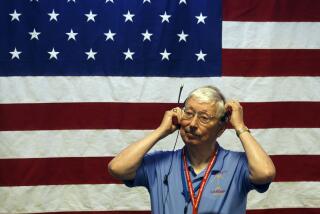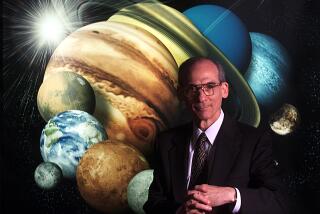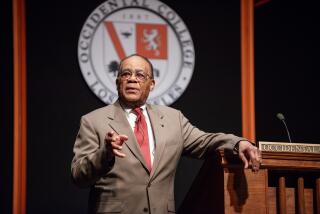James P. Layton; Rocketry Pioneer
- Share via
James Preston Layton, an engineer whose Space Age contributions began with the testing of large solid fuel rockets in the Pacific after World War II and extended to design work on the space shuttle, has died.
Layton, 73, died in San Jose of cancer on Dec. 3.
He received a degree in aeronautical engineering from New York University in 1941 and went on active duty with the Navy until the end of World War II.
As a naval officer, he worked with jet-assisted takeoff boosters, tested solid fuel units in the Pacific and helped develop liquid fuel systems at the U.S. Naval Academy laboratory.
After the war, he joined the Glenn L. Martin Co. of Baltimore and in 1948 directed testing for the Viking series, the first large U.S. rockets.
He was on the Princeton University research faculty from 1951 to 1976. As chief engineer of the university’s Guggenheim jet propulsion laboratories, he established a rocket research lab and tested liquid ozone as a propellant.


